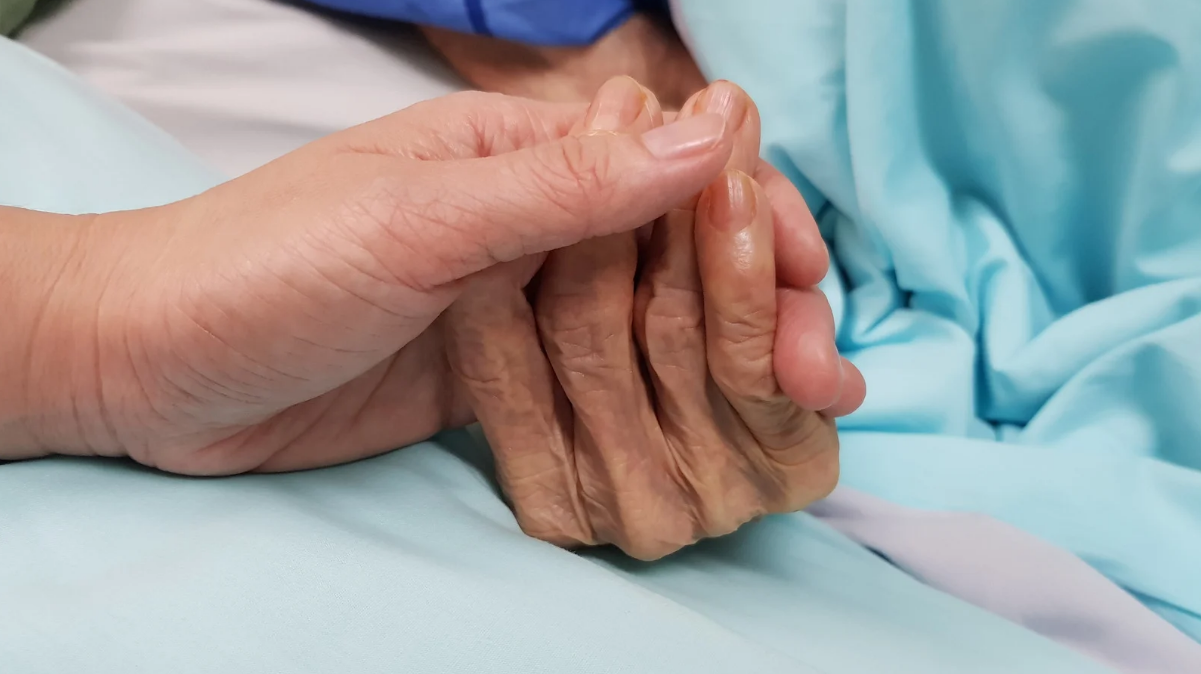End of life care decisions are among the most personal and emotional choices anyone will ever face. These moments often come with uncertainty—about what to do, how to help, and what truly matters most as a loved one’s health begins to decline. Families are suddenly asked to balance medical realities with emotional truths, seeking comfort in clarity while navigating the unknown.
At its heart, end-of-life care is not about giving up hope; it’s about redefining it. The focus shifts from prolonging life to preserving its quality—ensuring that comfort, dignity, and compassion guide every choice. Whether the decision involves medical treatment, palliative support, or care provided at home, each step reflects love, respect, and understanding for the person you cherish. Working closely with healthcare professionals to make informed decisions rooted in the individual’s values and beliefs can bring a sense of peace and purpose to an otherwise difficult journey.
What Is End of Life Care?
End-of-life care is a compassionate approach that focuses on supporting individuals as they near the final stage of life. Rather than aiming to cure illness, this kind of care centers on comfort—easing physical symptoms, nurturing emotional and spiritual peace, and helping both patients and families find meaning and connection during this time.
It may involve managing pain, easing shortness of breath, reducing nausea, or addressing anxiety and sleeplessness. But just as importantly, it provides emotional support, guidance, and presence—ensuring no one feels alone through the process. Every plan is shaped around the person’s values, beliefs, and preferences, whether they wish to spend their remaining days at home or in a care facility.
At its core, end-of-life care is about honoring life until its natural end. It helps individuals live with dignity and comfort, and it gives families the reassurance that their loved one’s final chapter is guided by compassion, respect, and love.
Who Makes End of Life Care Decisions?

When someone nears the end of life, many questions arise: Who makes the decisions if the person can’t speak? What choices must be made? How should conflicts be resolved? The following guidance is meant to help families understand roles, options, and steps they can take—so decisions reflect the patient’s wishes and values as faithfully as possible.
1. Centering the Person’s Wishes First
- Autonomy and refusal of treatment
Even when very ill, a person generally retains the right to refuse medical treatments—even those that might prolong life. This principle means that care decisions should start with what the individual would want. - Flexibility in location of care
Many people express preferences about where they want to be during their final days—at home, in a hospital, or in a hospice setting. Those preferences can change depending on symptom severity, family support, or changes in condition.
2. Legal Tools to Guide Decisions
To avoid uncertainty, it’s beneficial (while the person is still able) to put in place advance planning documents. These help guide decisions if capacity is lost.
- Advance Directives / Living Will
These documents record which treatments a person would or would not want under certain circumstances (e.g. ventilator use, dialysis, feeding tubes). - Durable Power of Attorney for Health / Health Care Proxy
This designates a trusted individual (the “agent”) to act as the surrogate decision-maker when the patient can’t voice preferences - Do Not Resuscitate (DNR) Orders
A DNR is a formal medical order indicating that a person prefers not to receive CPR if breathing or heartbeat stops. Its scope and validity may vary (e.g. hospital, home). - POLST (Physician Orders for Life-Sustaining Treatment)
In regions where it’s used, a POLST form serves not just as a preference document, but a medical order that guides emergency responders and physicians—especially in urgent situations.
By using these tools, the patient’s voice remains central, even when they can no longer actively speak.
3. Role of Surrogate Decision-Makers (Family or Agent)
If the patient is unable to make decisions and has not left clear instructions, the responsibility often falls to surrogate decision-makers—typically family members, a chosen proxy, or next of kin.
- Duty to represent the patient’s wishes
Surrogates are ethically bound to make decisions based on what the patient would have chosen (known as “substituted judgment”) or, if unknown, based on what seems to be in the patient’s best interest—balancing quality of life and medical realities. - Handling disagreements and complexity
Conflicts can arise among family members or with care teams. In such cases, structured discussions, mediation, or ethics consultations may be needed to align everyone on decisions that reflect the patient’s values. - It is not about doing what feels best for the family
The goal is not to satisfy every family member’s wishes but to best honor the patient’s own wishes and dignity.
4. Healthcare Team’s Supportive-but-Non-Decisive Role
Healthcare providers—including physicians, nurses, and case managers—do not make the decisions. Rather, their role is to:
- Offer clear medical information, prognosis, and treatment options
- Facilitate discussions and clarify what each option may mean in practice
- Explain risks, benefits, and expected outcomes
- Encourage alignment between medical realities and the patient’s known or expressed goals
- Help incorporate decisions into the care plan, ensuring the team carries them out faithfully
In difficult cases, hospitals or care systems may bring in ethics committees or consultants in palliative care to help families and clinicians navigate complex choices.
5. Examples of Important Decisions to Consider
Drawing from the URMC resource, here are some specific decisions that often need attention during the dying process: University of Rochester Medical Center
- Refusing or stopping life-sustaining treatments
- Choosing location of care (home, hospice facility, hospital)
- Do Not Resuscitate (DNR) orders for CPR
- POLST / medical orders reflecting treatment preferences
- Autopsy consent
- Organ donation decisions
Each of these decisions involves ethical, emotional, and medical considerations. Advance conversations can make these decisions less stressful for everyone involved.
How Skilled Nursing Supports End of Life Care

When individuals and their families choose to spend the remaining days of life in the comfort of their own home, skilled nursing care becomes a cornerstone of support. In familiar surroundings, surrounded by loved ones, patients often experience greater peace and dignity. Skilled nurses make this possible by delivering professional, compassionate care right where it matters most.
1. Personalized Care Planning
Each person’s condition, symptoms, and emotional needs are unique. Skilled nurses collaborate with healthcare providers to design individualized care plans that address pain management, nutrition, hydration, and mobility needs—ensuring care remains centered on the patient’s goals.
2. Symptom Monitoring and Management
Symptoms can change quickly near the end of life. Nurses regularly assess pain, breathing, and overall comfort, adjusting care routines as needed to provide immediate relief. They are trained to recognize subtle signs of discomfort or distress, allowing timely intervention.
3. Education and Family Support
Families often feel unsure about what to expect as illness progresses. Nurses educate them on how to provide comfort, recognize signs of change, and manage daily routines safely. This knowledge empowers families to participate in care with confidence and compassion.
4. Emotional and Spiritual Presence
End-of-life care is not only medical—it is human. Nurses provide emotional support through listening, reassurance, and empathy. They also respect and facilitate each person’s spiritual needs, whether through prayer, reflection, or quiet companionship.
5. Coordinated Care
End-of-life care involves many professionals—doctors, social workers, therapists, and counselors. Skilled nurses help coordinate this teamwork, ensuring that the patient’s comfort and dignity remain the shared focus.
Emotional, Spiritual, and Practical Considerations

The end of life affects not just the patient but also their loved ones. Understanding the emotional, spiritual, and practical aspects of this stage can make the journey more peaceful and meaningful.
- Emotional Support: It’s normal to experience sadness, anger, or even guilt when facing the loss of someone you love. Talking with counselors, spiritual leaders, or peer support groups can help families process their emotions and find strength.
- Spiritual Care: Many individuals find comfort in their faith or personal beliefs. Whether through prayer, meditation, or simple reflection, spiritual care can bring peace and closure. Healthcare teams can help facilitate access to chaplains or spiritual counselors upon request.
- Practical Planning: This is also a time to address financial and logistical details—such as understanding insurance coverage, preparing necessary documents, and arranging in-home equipment or hospice support. Planning ahead can reduce stress and help families focus on spending meaningful time together.
- Legacy and Connection: Encouraging loved ones to share stories, express gratitude, or create keepsakes can be profoundly healing. These gestures honor a person’s life and provide comfort to family members long after.
Steps to Make Informed End-of-Life Decisions
- Start Conversations Early.
Discuss preferences for medical treatment, living arrangements, and comfort measures before a crisis occurs. Early planning reduces confusion and stress later on. - Seek Guidance from Professionals.
Consult physicians, nurses, and social workers who can explain medical realities and care options clearly. - Document Wishes.
Use advance directives, living wills, or health care proxies to ensure choices are legally recognized and respected. - Revisit Plans Regularly.
A person’s health or perspective may change over time. Review care plans periodically to ensure they still align with current wishes. - Focus on Connection.
Beyond medical care, prioritize emotional and spiritual connection. Shared moments of love and gratitude often mean more than any treatment decision.
Tips for Families to Support Their Loved Ones

- Communicate openly. Encourage honest conversations about needs, fears, and hopes.
- Be present. Sometimes the most meaningful support is simply sitting together in silence.
- Care for yourself. Rest, eat well, and seek emotional support to avoid burnout.
- Create comfort. Soft lighting, familiar music, or favorite scents can bring calm and reassurance.
- Ask for help. Rely on healthcare teams or community resources for respite and guidance.
Supporting someone at the end of life is one of the deepest expressions of love—and it’s okay to lean on others for help.
Final Thoughts
End-of-life care decisions are never easy, but they are an act of love—rooted in respect, understanding, and compassion. With the guidance of skilled nursing professionals, families can navigate this chapter with confidence and grace.
At Genezen Home Health Care Services, we believe that every person deserves to live their final days in comfort, surrounded by dignity, care, and understanding. Our skilled nursing team works closely with families to ensure that every decision honors the individual’s wishes and enhances quality of life.If you or someone you care for is facing end-of-life decisions, you don’t have to do it alone. Contact Genezen Home Health today to learn more about our compassionate, skilled nursing support and how we can help you find comfort and peace through every stage of care.


